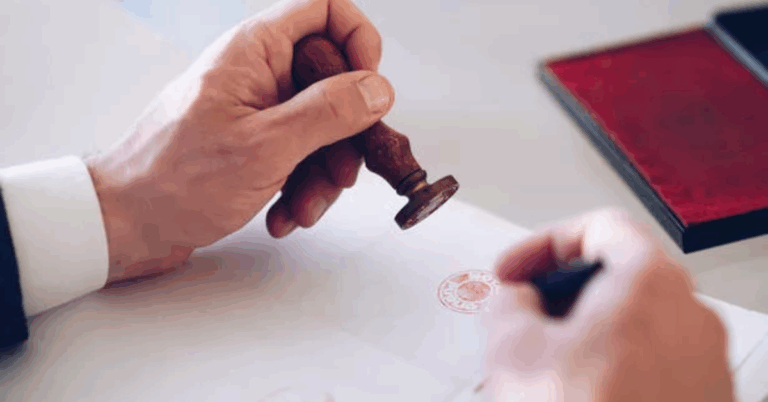A Comprehensive Guide to the Singapore Permanent Resident Application Process
Singapore is globally recognized for its economic stability, safety, modern infrastructure, and high standard of living. With its strategic location in Southeast Asia and a multicultural environment, it’s no surprise that thousands of foreigners seek to make the Lion City their long-term home each year. One of the most sought-after statuses for foreigners living in or looking to settle in Singapore is permanent residency. If you’re planning to establish a deeper connection with this vibrant nation, understanding the Singapore Permanent Resident Application process is essential.
Becoming a permanent resident (PR) in Singapore provides numerous benefits, including the freedom to live, work, and travel in and out of the country with ease. PRs enjoy many of the same rights as Singaporean citizens, such as access to quality healthcare, subsidized education for children, and the ability to buy public housing under the HDB scheme. For families and working professionals alike, obtaining PR status can be a gateway to a more secure and prosperous future.
Types of Singapore Permanent Resident Schemes
There are several schemes under which a person can apply for permanent residency in Singapore. These include:
1. Professionals/Technical Personnel & Skilled Workers Scheme (PTS Scheme)
The PTS Scheme is the most common route to PR status. It is open to foreign professionals who are currently working in Singapore under an Employment Pass, S Pass, or Entrepreneur Pass. The applicant must show a stable employment history, relevant qualifications, and contributions to Singapore’s economy.
2. Global Investor Programme (GIP)
The GIP is aimed at high-net-worth individuals who wish to invest significantly in the Singapore economy. To be eligible, applicants must have a successful entrepreneurial track record and be willing to invest S$2.5 million or more in a new or existing business, or in a GIP-approved fund.
3. Foreign Artistic Talent Scheme
For individuals in the arts, music, dance, photography, theatre, literature, and film, this scheme provides a route to PR status. Applicants must have a strong portfolio and be endorsed by relevant local agencies.
4. Family Ties Scheme
This scheme allows Singapore citizens and PRs to sponsor immediate family members for PR status. Common sponsors include spouses, children, and aged parents of Singaporeans or permanent residents.
Key Requirements and Documentation
The Singapore Permanent Resident Application process involves submitting an application through the Immigration & Checkpoints Authority (ICA) via the e-PR system. Here are the key documents typically required:
-
Passport and NRIC details (if applicable)
-
Employment Pass or S Pass
-
Educational certificates and transcripts
-
Employment letters and payslips
-
Income tax statements (usually the last 3 years)
-
Marriage certificate (for spouse applications)
-
Birth certificates (for children or dependents)
-
Professional certificates or licenses (if applicable)
All documents must be in English or officially translated. Applicants are also required to pay a non-refundable processing fee.
Evaluation Criteria
The Singapore government maintains a selective and merit-based approach to permanent residency. While there is no fixed formula, the ICA assesses each Singapore Permanent Resident Application based on several key factors:
-
Length of stay in Singapore: Applicants who have lived and worked in Singapore for a number of years are often viewed more favorably.
-
Professional skills and qualifications: Higher educational achievements and specialized skills increase your chances.
-
Economic contribution: Stable employment, high income, and regular tax contributions show commitment to the Singaporean economy.
-
Family ties: Having a Singaporean spouse or children can positively impact your application.
-
Age and adaptability: Younger applicants with the ability to integrate into society may be more favorably considered.
While each application is assessed holistically, meeting the minimum criteria does not guarantee approval, as quotas and national priorities can influence decisions.
Common Mistakes to Avoid
Many applicants fall short of approval due to common errors or omissions. Some of the most frequent mistakes include:
-
Submitting incomplete or outdated documents
-
Failing to declare overseas assets or income
-
Providing inconsistent information between forms
-
Not updating ICA of significant life changes (e.g., marriage, childbirth)
To ensure the best chance of success, applicants should double-check every part of their application and consider seeking professional help if unsure.
Why Hiring a Consultant May Help
Navigating the PR application process can be complex and time-consuming. Many applicants find value in working with immigration consultants who are experienced in handling Singapore Permanent Resident Application procedures. A professional consultant can guide you through each step, review your documents, provide feedback on your eligibility, and help craft a stronger personal profile.
While this doesn’t guarantee success, it significantly reduces the likelihood of making costly errors or missing critical deadlines.
Life After Becoming a PR
Once your application is approved, the next steps include completing formalities like attending an appointment at ICA, receiving your Blue NRIC (PR identity card), and updating your employment records with the Ministry of Manpower (MOM). You may also be subject to National Service if you’re a male PR under 21 years of age, depending on your circumstances.
PRs are also encouraged to contribute actively to the community, through civic activities, volunteer work, or community integration efforts. This not only enhances the benefits of residency but can strengthen future applications for Singapore citizenship.
Renewal and Re-Entry Permits
PR status is not indefinite. While your PR identity card doesn’t expire, your Re-Entry Permit (REP)—which allows you to travel in and out of Singapore while retaining PR status—must be renewed every five years. The ICA assesses REP renewal based on your continued ties to Singapore, such as residence, employment, and contributions to society.
If you leave Singapore without a valid REP, you may lose your PR status altogether.
Final Thoughts
Applying for permanent residency in Singapore is more than just submitting forms—it’s a commitment to building a future in one of Asia’s most dynamic and forward-thinking nations. By understanding the eligibility criteria, gathering the necessary documents, and presenting a strong, truthful application, you can significantly improve your chances of approval.
The Singapore Permanent Resident Application process may be competitive, but it opens the door to a wealth of opportunities. Whether you’re a professional seeking long-term career growth, an investor looking to contribute to the economy, or a family building roots in the city-state, PR status is a meaningful step forward.
Planning carefully, staying informed, and demonstrating genuine integration into Singaporean society will go a long way in securing a successful outcome for your application.





